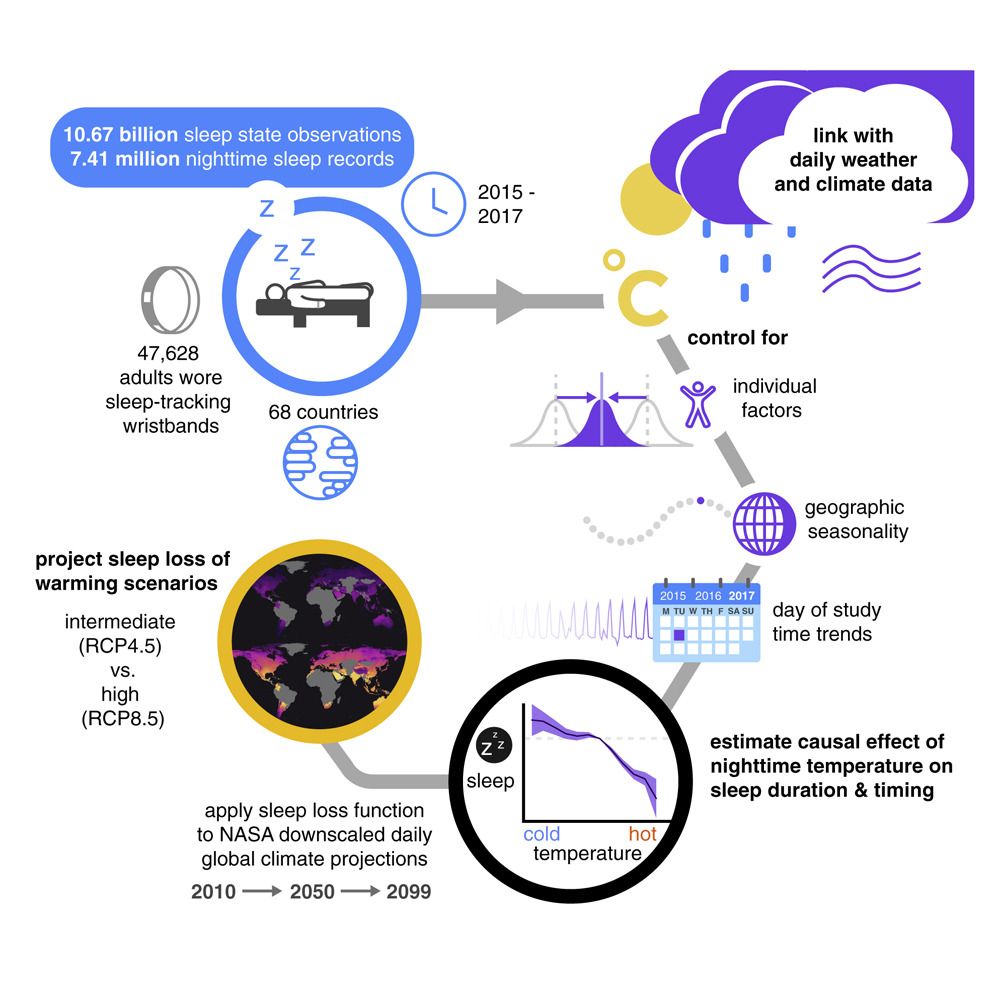Hot weather could be preventing you from getting a good night’s sleep. Scientists in Denmark found that increases in nighttime temperatures have a harmful effect on sleep quality.
A new study published by One Earth says that a person could lose over 50 hours of sleep by the next century.
Breaking down the numbers
Scientists from the Copenhagen Center for Social Data Science at the University of Copenhagen analyzed data from over 45,000 smart watches and wristbands from 68 countries.
Graphical abstract of climate and sleep study. (One Earth)
The study also included examining 10 billion sleep observations and 7 million repeated daily sleep records. The group observed nighttime sleep duration and sleep timing.
Then researchers correlated that data with meteorological and climate data over six months.
Quality of sleep
Medical experts recommend people getting a full eight hours of sleep, but warmer temperatures could prevent that from happening.
The study says “both skin and core body temperatures become more sensitive to environmental temperature during sleep, and duration of wakefulness has been shown to increase when temperatures warm or cool outside of the thermoneutral zone.”
The thermoneutral zone is basically the temperature range where you regulate your core temperature through blood flow.
It found that people are more likely to get seven hours sleep or less if the minimum nighttime temperatures were warmer than 77 degrees.
Plus, a person could lose more sleep if the nighttime temperature is hotter. Scientists from the study say we will lose a quarter hour of sleep if the temperature is warmer than 86 degrees.
In summary, they found “that adults fall asleep later, rise earlier, and sleep less during hot nights.”
Impact on population
The study notes that elderly people, women and people living in lower income countries are most affected by warming temperatures.
Scientists say people 65 and older are sensitive to increases in nighttime temperatures.
They also point out that a “female’s core body temperatures decrease earlier in the evening compared with males,” exposing them to higher temperatures when asleep.
Scientists say the lack of access to resources in lower income countries is having a disproportionate impact on their sleep in relation to climate change.

